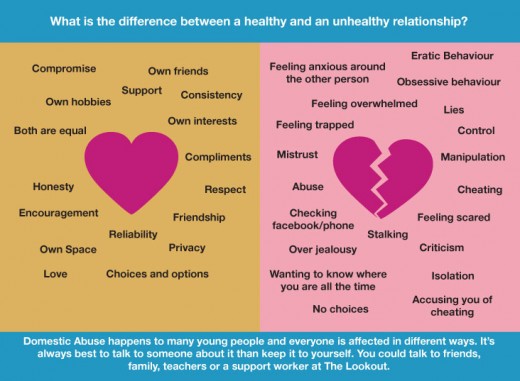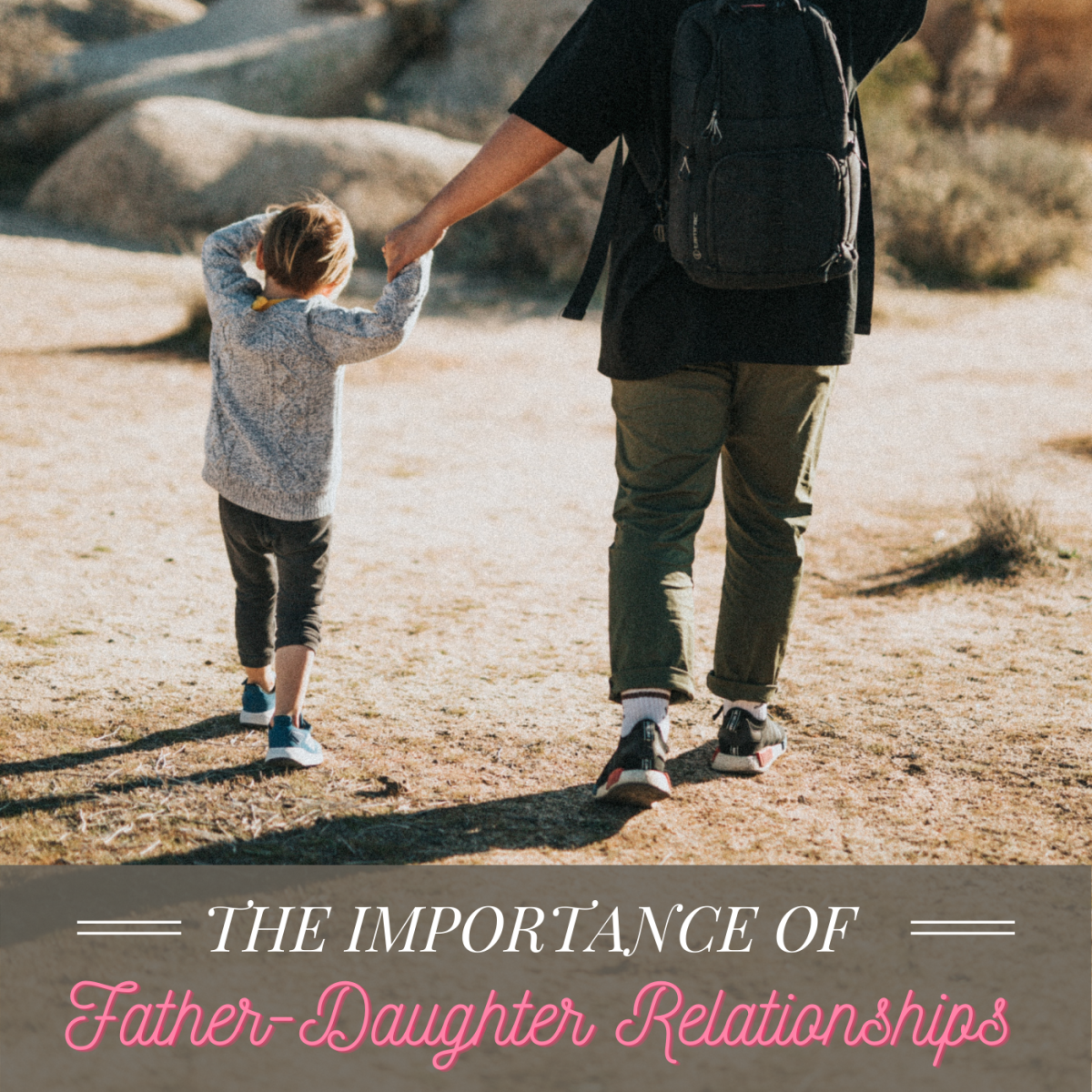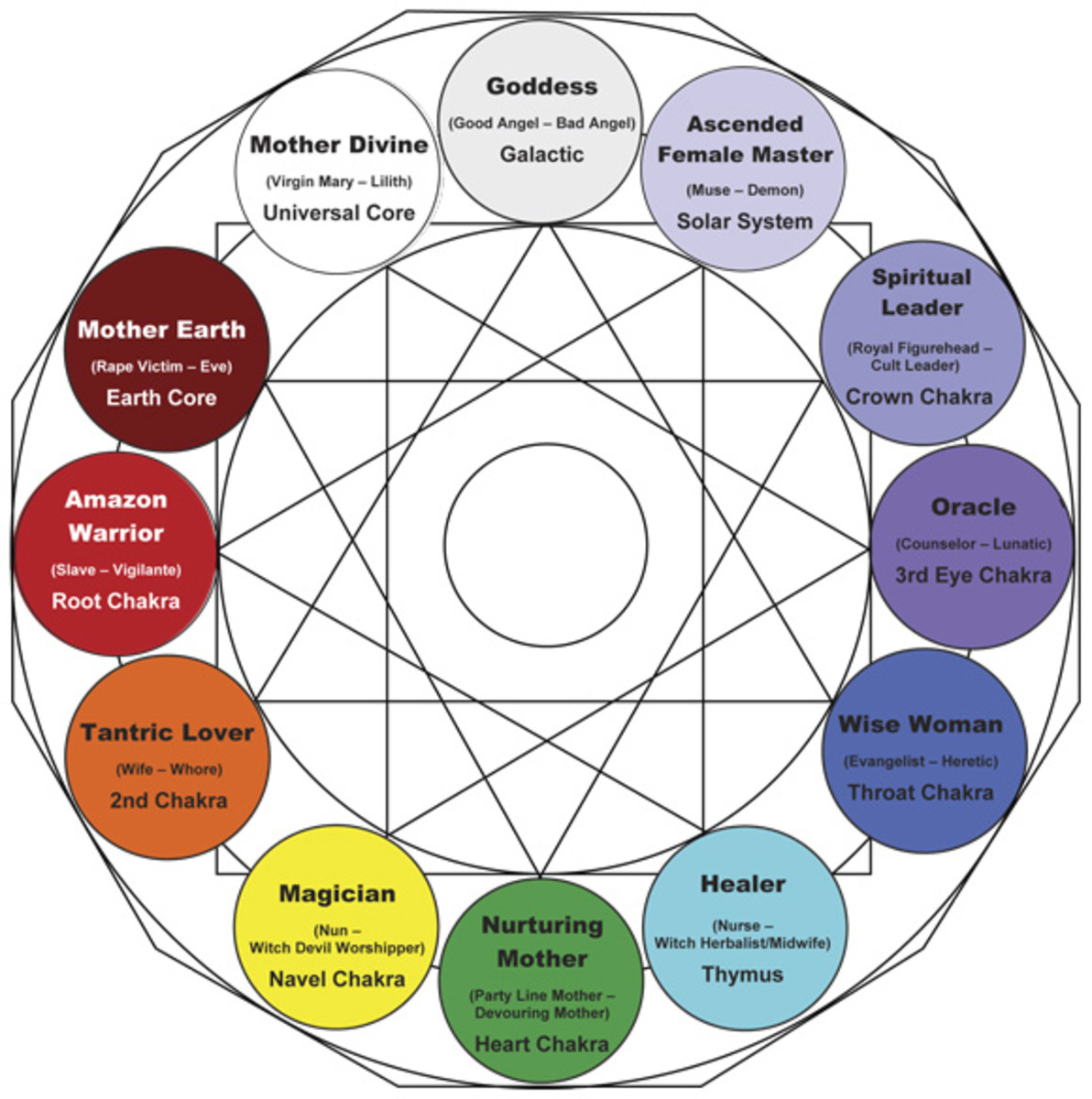How to Create Rules in Romantic Relationships
Recently, the National Institute of Marriage conducted a poll that asked respondents what they most want out of their romantic relationships. Options included: companionship, emotional safety, passion, unconditional acceptance, trust, and financial security. While unconditional acceptance and companionship were the top two, it is no surprise that, in summary, the study revealed that "relationships often sink or swim based on how well we manage our unmet wants, desires, and expectations." Therefore, it is critical for us to understand ourselves. (Sparks.).
My regular followers may recall that not too long ago, I wrote a hub entitled "How to Create House Rules for Adult Children." In that hub, I wrote that it was necessary to create house rules (and to commit them to a written document) to "maintain order, respect, and cooperation in a home." For a lot of people, that makes sense; after all, running a household is a job.
But what about your life?
Isn't your life worth investing the time and energy to have one that is orderly, respectful, and cooperative?
Don't you deserve people in your life that will positively contribute to those values?
I realize that given my legal expertise, some would expect me to write something along the lines of pre-nuptial agreements instead of "relationship rules." Let's just say that long before you decide to marry anyone (with or without a "pre-nup") you need to set up a precursor of "relationship rules" so you know, with the best clarity you can muster, if that person is right for you. You may have guessed, yes, every now and again, I like to write about real-world practicalities, even common sense.
Setting up the rules for your relationships is critical and necessary because it is part of having self-respect and loving yourself. Remember that you are worthy. So, here are the most important "relationship rules" for your romantic life. By the way, feel free to transfer these rules to other relationships in your life.
You teach people how to treat you.
— Dr. Phil McGraw
The Most Important Romantic Relationship Rules
RESPECT - Partners in romantic relationships must treat each other with respect always. In addition, your outside personal connections must also treat your partner with respect. Respect is to be shown during all interactions including but not limited to all communications, shared physical space, the property of another, and the privacy of another. Name calling, degrading comments, silent treatments, and cursings are torpedos that destroy all relationships. Each partner has the right to peaceful living.
HEALTH - Partners in romantic relationships have their own responsibility to take steps to ensure their physical, mental, and emotional wellness. In addition, each partner owes the other the freedom from imposition of behaviors or activities that would risk or compromise the physical, mental, or emotional well-being of their partner.
HUMAN DIGNITY - Closely related to respect, each partner has the responsibility to treat the other with compassion and dignity and to avoid interfering with the other's right to human autonomy. While there is nothing wrong with sharing common values, spirituality, activities, interests, etc., (in fact, these factors are often exactly what attracts us to another human being) none of us are identical; and we are entitled to follow the dictates of our own conscience. To impose on another's human autonomy is to be tyrannical. Each partner has the right to make their own personal choices so long as those choices do not negatively affect the other partner. Personal choices include, but are not limited to: friendships, family relationships, individual thoughts and values, employment, and education.
FREE FROM ABUSE - Each partner has the right to live a life free from abuse and the responsibility to refrain from abusing the other, including: verbal abuse, emotional abuse, physical abuse, manipulation, exploitation, asserting control by using fear or money, and being ignored or treated as if he or she has little or no value or does not exist.
HONESTY - Each partner has the right to expect honesty and integrity from the other and the responsibility to be honest with the other partner. Conducting oneself with complete honesty and integrity in all matters is crucial to the development of a trusting relationship. Simply stated: "say what you mean and mean what you say." Be honest with your feelings and with your actions. Honesty creates a sense of dependability. Honesty is not limited to "sexual cheating"; it encompasses a host of our personal behaviors.
INTIMACY - It doesn't make a difference whether you are a man or a woman in the relationship, romantic relationships require intimacy and many different levels of intimacy (emotional and physical closeness), not solely sexual intimacy. Romantic relationships work best when the partners have a close familiarity or friendship, a sense of togetherness, and warmth and affection.
RELATIONSHIP - Each partner has the responsibility to contribute positively to the maintenance of relationship harmony, the organization of any home created together, and the financial stability of the relationship. Quite frankly, to do otherwise is simply take the other person for granted or usury.
Questions that Create Intimacy
- The 36 Questions that Lead to Love
New York Times
The Dealbreakers
Don't be afraid to set ground rules in a relationship. This includes the dealbreakers:
- Criminal activity
- Illegal drug use
- Alcohol abuse
- Lying (outright or by omission), cheating, or stealing from one's partner
- Violent behavior toward oneself or one's partner
- Destruction of another’s property
- Disrespect
- Any activity that risks the safety and security of one's partner
Healthy vs. Unhealthy Relationships

Create a healthy relationship while maintaining your individuality.

Keeping the Rules Simple
In many things, it is important to keep things as simple as possible; it makes life easier to manage. Personally, I have relationship rules for all of my relationships (romantic or otherwise); and, yes, some of those are actually in writing. When it comes to rules for romantic relationships, we can narrow it down to three basic rules. The relationship must be:
- Honest
- Healthy
- Intimate
If there is any behavior that compromises these three basic rules, then the relationship warrants an honest reassessment. Dr. Lisa Firestone acknowledges the need to have relationship rules and the importance of setting boundaries in a relationship; however, it is important in setting these rules and boundaries to ask oneself the following questions:
- Am I breeding an environment of resentment?
- Am I limiting my partner in ways that interfere with his or her spirit or vitality?
One more critical point: the relationship rules must be clearly articulated to your partner. Quite frankly, if you don't articulate the rules, then you are not operating with honesty and integrity, certainly not to your partner but, more importantly, not to yourself. You must have a series of conversations. Give your partner a framework of dependability. Make your relationship rules part of who you are and a commitment to yourself. For example: if you say that you will not tolerate name calling, do not accept it when it occurs. Abuse is a progressive process. Love yourself enough to walk away from the relationship when you identify the red flags. "Healthy relationships allow both partners to feel supported and connected but still feel independent. Communication and boundaries are the two major components of a healthy relationship." (National Domestic Violence Hotline.).
The idea of creating rules in your relationship is not to place countless restrictions on your partner; rather it is about creating a relationship that has a solid foundation based on respect, trust, common ground, and genuine compassion for one another. It is about creating a relationship that gives an enhanced dimension to one's life without compromising one's individuality.
Cheers to adding great love to your life and keeping yourself intact in the process.
Special thanks to Leslie F. and Michelle Y. for inspiring this hub.
Share your experience
Do you have difficulty setting boundaries in a romantic relationship?
Works Cited.
Firestone, Lisa, Ph.D. "5 Rules for a More Trusting Relationship." Psychology Today. Apr. 1, 2014. https://www.psychologytoday.com/blog/compassion-matters/201404/5-rules-more-trustworthy-relationship. Access date: February 17, 2015.
National Domestic Violence Hotline. "Healthy Relationships." 2015. http://www.thehotline.org/is-this-abuse/healthy-relationships/. Access date: February 17, 2015.
Sparks, Brett, Ph.D. "Relationship Wants." National Institute of Marriage. Feb. 2015. http://nationalmarriage.com/marriage-research/relationship-wants/. Access date: February 17, 2015.
By Liza Lugo, J.D.
© 2015. All Rights Reserved.
Ms. Lugo retains exclusive copyright and publishing rights to all of her articles and photos by her located on Hub Pages. Portions of articles or entire content of any of these articles or photos may not be used without the author's express written consent. Persons plagiarizing or using content without authorization may be subject to legal action.
Permission requests may be submitted to liza@lizalugojd.com.
Originally written and published on February 17, 2015. Latest corrections and edits made on February 23, 2015.








